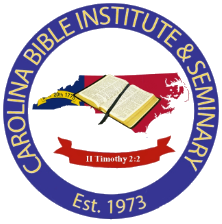HOMILETICS II OVERVIEW
The “Homiletics II” course builds upon the foundational principles introduced in Homiletics I, aiming to deepen students’ understanding and proficiency in the art of preaching within the context of Christian ministry. This advanced course delves into more intricate aspects of sermon preparation, delivery, and the application of advanced homiletical theories. Students will explore specialized preaching styles, engage with complex theological themes, and refine their preaching skills through practical exercises and in-depth theological reflection.

Building on the foundations laid in Homiletics I, the “Homiletics II” course aims to cultivate advanced preaching skills, theological depth, and cultural sensitivity in students. By addressing more complex aspects of sermon preparation and delivery, students will be equipped to engage with diverse audiences and communicate the richness of the Christian faith effectively.
DETAILS
- Advanced Sermon Series Project:
- Develop an advanced sermon series project that explores a theological theme in-depth, demonstrating proficiency in long-term sermon planning and thematic development.
- Narrative Preaching Practicum:
- Engage in a narrative preaching practicum, delivering sermons that effectively communicate biblical narratives and reflect on the unique challenges and opportunities of this preaching style.
- Apologetic Sermon Presentation:
- Deliver an apologetic sermon, integrating apologetic principles into preaching and addressing specific questions or objections relevant to the contemporary audience.
- Ethical Preaching Reflection Paper:
- Write a reflection paper on the ethical considerations in preaching, exploring personal convictions, responsibilities, and the impact of ethical choices on the congregation.
- Cultural Engagement Sermon Analysis:
- Analyze and present a sermon that engages with a culturally diverse audience, reflecting on the cultural nuances and strategies employed in effective cross-cultural preaching.
- Special Occasion Preaching Project:
- Develop a special occasion preaching project, outlining sermon outlines and approaches for weddings, funerals, or other significant events.
- Technology in Preaching Presentation:
- Create and deliver a presentation on the effective use of technology in preaching, exploring innovative ways to enhance the preaching experience through digital tools.
- Final Reflective Homiletical Paper:
- Write a final reflective paper that synthesizes key learnings from the course, personal growth as a preacher, and plans for continued development in homiletics.
- Class Participation and Peer Feedback:
- Actively participate in class discussions, provide constructive peer feedback, and engage in collaborative learning activities to foster a supportive and enriching learning environment.
Curriculum
- Advanced Exegesis and Hermeneutics:
- Dive into advanced techniques in biblical exegesis and hermeneutics, honing the ability to interpret and apply Scripture with nuance and depth in sermon preparation.
- Theological Depth in Preaching:
- Explore theological themes with greater depth, addressing complex doctrinal topics and examining ways to communicate profound theological truths in a clear and accessible manner.
- Narrative Preaching:
- Focus on the art of narrative preaching, understanding how to craft and deliver sermons that effectively communicate biblical narratives and connect with the congregation on a personal level.
- Apologetics and Preaching:
- Integrate apologetic principles into preaching, equipping students to address contemporary challenges, doubts, and objections to the Christian faith within the preaching context.
- Ethical Preaching:
- Discuss ethical considerations in preaching, addressing issues such as transparency, authenticity, and responsibility in the communication of biblical truths.
- Preaching in Culturally Diverse Contexts:
- Examine the challenges and opportunities of preaching in culturally diverse contexts, exploring strategies for connecting with diverse audiences while maintaining theological fidelity.
- Special Occasion Preaching:
- Learn to preach effectively on special occasions such as weddings, funerals, and other significant events, considering the unique dynamics and sensitivities involved in these contexts.
- Utilizing Technology in Preaching:
- Explore the effective use of technology in preaching, incorporating multimedia elements, online platforms, and other digital tools to enhance engagement and communication.
REQUIREMENTS
- Homiletics I (or Equivalent):
- Successful completion of a foundational homiletics course (Homiletics I or an equivalent) to ensure a solid understanding of basic preaching principles and practices.
- Advanced Biblical Studies:
- Proficiency in advanced biblical studies, including courses in advanced exegesis and hermeneutics, to facilitate a deeper exploration of biblical texts in sermon preparation.
- Theology and Doctrinal Studies:
- Background in theology and doctrinal studies, providing a foundation for addressing more complex theological themes in preaching.
- Advanced Christian Ethics:
- Familiarity with advanced Christian ethics to engage with ethical considerations specific to preaching in various contexts.
- Communication Skills:
- Continued proficiency in advanced communication skills, including verbal and non-verbal communication, to build upon the foundational communication skills developed in the previous homiletics course.
- Homiletics I Assignments (or Equivalent):
- Completion of assignments from Homiletics I (or an equivalent course), demonstrating a foundational grasp of sermon preparation and delivery.
- Church Ministry Experience (Recommended):
- While not mandatory, students with some experience or active involvement in church ministry, especially in preaching roles, may find the course more directly applicable, bringing practical insights to discussions and assignments.
- Research and Writing Skills:
- Proficiency in research and writing skills to engage in advanced sermon planning, reflection papers, and presentations required in the course.
- Cultural Sensitivity Training (Recommended):
- Familiarity with cultural sensitivity training is recommended to enhance the student’s ability to preach effectively in culturally diverse contexts.
- Technology Literacy (Recommended):
- Basic literacy in technology, including familiarity with multimedia tools and online platforms, is recommended to fully engage with the exploration of technology in preaching.
These prerequisites are designed to ensure that students entering the “Homiletics II” course have a foundational understanding of homiletics, advanced biblical studies, and the necessary skills for in-depth sermon preparation and delivery. This foundational knowledge will enable students to engage with the advanced preaching concepts and discussions presented in the course effectively.








